



The Council on Energy, Environment and Water is one of Asia’s leading not-for-profit policy research institutions. CEEW uses data, integrated analysis, and strategic outreach to explain – and change – the use, reuse, and misuse of resources.

Integrated
Be it of disciplines, cultures, teams, or points of view - synergies and respect drive our research, outreach and behaviour.

International
Focus on understanding global challenges and implications for India's development. All research outputs internationally relevant.

Independent
Funding and findings are mutually exclusive. Non-partisan. Editorial independence is sacred.
Mr. Jamshyd N. Godrej is the Chairman of the Board of Godrej & Boyce Manufacturing Company Limited. He graduated in Mechanical Engineering from Illinois Institute of Technology, USA. Mr. Godrej is the former Chairman of Ananta Aspen Centre (previously known as Aspen Institute India), Chairman & Trustee of Ananta Centre. He is the President of World Wide Fund for Nature – India. He is the Chairperson of the Board of Directors of Shakti Sustainable Energy Foundation, India Resources Trust and Council on Energy, Environment and Water. He is a Director of World Resources Institute, USA. He is also a Trustee of the Asia Society, USA. He is the Past President of Confederation of Indian Industry and also the Past President of the Indian Machine Tool Manufacturers’ Association.
Mr. Godrej is the Chairman of the CII Sohrabji Godrej Green Business Centre. The Centre is housed in a LEED Platinum demonstration building which is the first green building in India and the greenest building in the world at the time when it was rated. The Green Business Centre is a Centre of Excellence for green buildings, energy efficiency, energy conservation, non-conventional energy sources, water policy, water conservation, etc. Godrej and Boyce Mfg. Co. Ltd. manufactures and markets refrigerators; washing machines; air conditioners; office furniture; home furniture; security equipment for banks (such as safes, strong room doors, bank lockers, etc.) and for commercial establishments and homes; locks and latches, forklift trucks and warehousing equipment; process equipment for chemical, petrochemical, refineries and allied industries; precision tools for sheet metal, zinc, aluminum; real estate development. The Godrej group are leaders in home appliances, consumer durables, office equipment, industrial products, consumer products and services.
Mr. Godrej is an ardent yachting enthusiast and has done extensive cruising along the west coast of India, the Baltic & North Sea, the Atlantic Ocean and in the Mediterranean Sea. The President of India conferred on Mr. Godrej the “Padma Bhushan” on 3rd April 2003.
Tarun Das is currently the Chairman Sasakawa India Leprosy Foundation (S-ILF) and also Chairman, Advisory Board, JCB India.
He is on the Board of Trustees of various non-profit institutions such as Ananta Aspen Centre(AAC); Ananta Centre (AC); The Aspen Institute, USA; Council on Energy Environment and Water (CEEW);Singapore India Partnership Foundation (SIPF).
He has been working closely on deepening international ties. He is Co-Chair US – India Strategic Dialogue, India-Japan Strategic Dialogue, US-India-Japan Strategic Dialogue and Member, India- Singapore Strategic Dialogue, India-China Strategic Dialogue, India-US Climate Change and Energy Dialogue, India-U.K Climate Change and Energy Dialogue. He is India Chair of the Trilateral Commission.
He is also Member, International Advisory Board, Chubb (USA).
Formerly, he was the Director General of Confederation of Indian Industry (CII) from April 1967 to May 2004 and from June 2004 to Oct 2009 he was the Chief Mentor of CII.
He has authored a book: “Crossing Frontiers.”
He has received Padma Bhushan for his contribution in the field of Trade and Industry, by the President of India; Singapore National Award (Public Service Medal) by the Singapore Government for his contribution in strengthening economic ties between India and Singapore; Honorary Doctorate in Science, The University of Warwick, UK; Honorary CBE for contribution to Indo-British relations; Honorary Doctorate by the Tel Aviv University, Israel for extraordinary commitment to promoting the Indian Economy in the global arena; Sweden Royal Order of the Polar Star for contribution in strengthening Indo- Swedish relations; Order of the Rising Sun, Gold Rays with Neck Ribbon by Japan Government for contribution in strengthening India- Japan relations.
Dr Anil Kakodkar joined the Bhabha Atomic Research Centre (BARC) in 1964, following the one year post graduate training with top rank in Nuclear Science and Technology in the then Atomic Energy Establishment. He became the Director of BARC in the year 1996 and was the Chairman, Atomic Energy Commission and Secretary to the Government of India, Department of Atomic Energy, during the years 2000 -2009. Currently he is DAE Homi Bhabha Chair Professor at BARC.
Kakodkar has worked for the development of the atomic energy programme in India throughout his professional life. Undeterred by the restrictions imposed by the international community, he succeeded in developing various systems for the pressurized heavy water reactor, in building the Dhruva reactor starting from the conceptual stage, in rehabilitation of Madras Atomic Power Station Units 1&2 both of which at one stage appeared to be on the verge of being written off following failure of the moderator inlet manifolds, in conceptualization and development of Advanced Heavy Water Reactor that realizes the next generation objectives through innovative configuration of present day technologies besides use of thorium.
Kakodkar has been a key contributor to India’s strategic programme. He was among the chosen few involved in the first successful Peaceful Nuclear Explosion Experiment that India conducted on May 18, 1974 at Pokhran. And later, he played a key role in the series of successful Nuclear Tests conducted during May 1998, again at Pokhran. India also demonstrated nuclear submarine powerpack technology under Kakodkar’s leadership.
Kakodkar’s sterling leadership led to a significant boost to India’s nuclear power programme notwithstanding the uranium supply constraints. As a result and with the completion of projects already underway, India’s nuclear generation capacity is set to reach 10,000 MWe as well as poised for a rapid scale up thereafter. The comprehensive and robust programme under Kakodkar’s leadership has earned India a distinctive status as a country with advanced nuclear technology.
Notable also are his innovative contributions to human resource development activities. Establishment of NISER (National Institute of Science Education and Research), DAE-Mumbai University CBS (Centre for Basic Sciences) and HBNI (Homi Bhabha National Institute) are expected to result in a fresh wave of human resource development, generating greater experimental capabilities and bringing in linkage between basic research and technology development for the acceleration of India’s multifaceted atomic energy programme.
A committee under his Chairmanship has worked out a detailed report for greater autonomy of IITs and taking them to world class level. He also chairs an empowered committee to take the process forward. He also led a committee set up by Government of Maharashtra to look at higher education in the State. The committee has made important recommendations that could lead to a paradigm change for improvement of higher education in the State. Another high-level committee under his Chairmanship has made comprehensive recommendations for improvement of safety on Indian Railway.
Notable also are his innovative contributions to human resource development activities. Establishment of NISER (National Institute of Science Education and Research), DAE-Mumbai University CBS (Centre for Basic Sciences) and HBNI (Homi Bhabha National Institute) are expected to result in a fresh wave of human resource development, generating greater experimental capabilities and bringing in linkage between basic research and technology development for the acceleration of India’s multifaceted atomic energy programme.
Mr S Ramadorai was in the public service from February 2011 to October 2016, having completed a five-year term in the area of Skill Development. During his tenure as the Chairman of National Skill Development Agency (NSDA) and the National Skill Development Corporation (NSDC), his approach was to standardise the skilling effort, ensure quality and commonality of outcomes by leveraging technology and create an inclusive environment to co-operate, collaborate & co-exist. He strongly believed that empowering the youth with the right skills could define the future of the country.
Mr. Ramadorai is currently the Chairman of the Advisory Board at Tata STRIVE, which is the Tata Group’s CSR skill development initiative that aims to address the pressing national need of skilling youth for employment, entrepreneurship and community enterprise. He is also the Chairman of Tata Technologies Limited and additionally serves as an Independent Director on the Boards of Piramal Enterprises Limited and DSP Investment Managers. In March 2016, he retired as the Chairman of the Bombay Stock Exchange (BSE Limited) after having served on their board for a period of six years.
Mr. Ramadorai took over as the CEO of Tata Consultancy Services (TCS) in 1996 when the company’s revenues were at $ 155 million and since then led the company through some of its most exciting phases, including its going public in 2004. In October 2009, he retired as the CEO, leaving a $ 6 billion global IT services company to his successor. He was then appointed as the Vice Chairman and retired in October 2014, after an association of over 4 decades with the company.
Given his keen passion to work for the social sector and community initiatives, he serves as the Chairman of the Council of Management at the National Institute of Advanced Studies (NIAS). He is also the President of the Society for Rehabilitation of Crippled Children (SRCC) – which has recently built a super speciality children’s hospital in Mumbai. He was the Chairperson of the Governing Board at the Tata Institute of Social Sciences (TISS) until December 2021.
In recognition of his commitment and dedication to the IT industry he was awarded the Padma Bhushan (India's third highest civilian honour) in January 2006. In April 2009, he was awarded the CBE (Commander of the Order of the British Empire) by Her Majesty Queen Elizabeth II for his contribution to the Indo-British economic relations. In 2016, he was also awarded The Economic Times - Lifetime Achievement Award for his glorious contribution to Tata Consultancy Services.
His academic credentials include a Bachelor’s degree in Physics from Delhi University (India), a Bachelor of Engineering degree in Electronics and Telecommunications from the Indian Institute of Science, Bengaluru (India) and a Master’s degree in Computer Science from the University of California – UCLA (USA). In 1993, Ramadorai attended the Sloan School of Management’s highly acclaimed Senior Executive Development Program. Ramadorai is a well-recognized global leader and technocrat who has participated in the Indian IT journey from a mere idea in 1960’s to a mature industry today. Ramadorai captured this exciting journey in a wonderfully personalized book titled 'The TCS Story...and beyond' which was published in 2011 and remained on top of the charts for several months.
Among his many interests, Ramadorai is also passionate about photography and Indian classical music.
Mr Montek Singh Ahluwalia was the Deputy Chairman of the Indian Planning Commission, with the rank of Cabinet Minister, from July 2004 to May 2014. Mr Ahluwalia started his career in the World Bank in 1968 as a Young Professional and left the World Bank in 1979 to join the Government of India in 1979 as Economic Adviser in the Ministry of Finance. From 1979 to 2001, he served in the Government of India in a number of positions – Special Secretary to the Prime Minister, Commerce Secretary, Secretary in the Department of Economic Affairs, Finance Secretary in the Ministry of Finance, Member of the Planning Commission and Member of the Economic Advisory Council to the Prime Minister.
In 2001, Mr Ahluwalia was appointed the First Director of the newly created Independent Evaluation Office of the International Monetary Fund. He resigned from that position in June 2004, to take up the position of Deputy Chairman, Planning Commission.
Mr Ahluwalia earned his B.A. (Hons) degree in New Delhi and was a Rhodes Scholar at Oxford, where he earned his M.A. and M. Phil degrees from Oxford University. He was awarded an Honorary D. Phil by Oxford University in 2008. His published work includes numerous papers in professional journals and contributions to books.
He was awarded the prestigious “Padma Vibhushan”, India’s second highest civilian honour, by the President of India in 2011 for his outstanding contribution to economic policy and public service.
Mr Ahluwalia is an Honorary Fellow of Magdalen College, Oxford and is a Distinguished Practitioner in the Blavatnik School in Oxford University. He was a Distinguished Visiting Professor at the Stern School of Business, New York University in 2015. He is currently on the Board of the Public Health Foundation of India.
Dr Naushad Forbes is the Co - Chairman of Forbes Marshall, India's leading Steam Engineering and Control Instrumentation firm.
Forbes Marshall’s deep process knowledge helps their customers save energy, improve product quality, increase process efficiency, and run a clean and safe factory. Market leadership in India and, increasingly, internationally comes from highly trained people and the depth of their knowledge. A close connect with customers enables the design of products that address customer needs around the world. The products are made in a facility that is world-class in scale, aesthetics and work environment. Forbes Marshall has consistently ranked amongst India's Great Places to Work.
Naushad was an occasional Lecturer and Consulting Professor at Stanford University from 1987 to 2004 where he developed courses on Technology in Newly Industrializing Countries. He received his Bachelors, Masters and PhD Degrees from Stanford University.
Naushad is on the Board of several educational institutions and public companies. He is the Chairman of Centre for Technology, Innovation and Economic Research in Pune.
Naushad has long been an active member of CII and has at various times chaired the National Committees on Higher Education, Innovation, Technology and International Business. He was President of CII for 2016 – 17.
Ms Nengcha joined the Indian Foreign Service in 1980 and retired in May 2017. In a career spanning 37 years, she had served as India’s Ambassador to Indonesia, Serbia and Lebanon. She also served in various capacities at other Indian Missions in New York City (Dy. Consul General), Havana, Dhaka and Mexico City and at the Ministry of External Affairs, New Delhi.
She is a recipient of the Prime Minister of India’s Award for Excellence in Public Administration, 2007-08.
Ms. Nengcha hails from Manipur and was educated in Imphal and Shillong. Since her retirement, she is devoting half her time in her home state working on a grassroots level project to revive traditional Kuki architecture, and promoting low carbon housing and additional income generating activities for the villagers such as multiple cropping, poultry, mushroom farming, bee keeping, upgrading skills in traditional crafts, etc.
She is married to Gautam Mukhopadhaya and they have two children.
Dr Janmejaya Sinha is Chairman of BCG's India Practice and also a BCG Fellow doing research on the subject of Family Businesses. He is a member of The Boston Consulting Group’s Henderson Institute Innovation Sounding
Board, which is dedicated to supporting, inspiring, and guiding upstream innovation at BCG. Previously served as Chairman of the Asia-Pacific region between 2009 – 2018 and as a member of the firm's Executive Committee between 2006 – 2018.
He has deep expertise in managing conflict in family owned businesses. He has worked extensively with clients across the world over a range of issues encompassing large scale organization transformation, strategy, governance, family business issues and operations turnaround. He has been a member of various committees set up by Government of India, Reserve Bank of India (RBI), Indian Banks' Association (IBA), and Chair's Confederation of Indian Industry's Committee on Inclusion and Digitisation. He was a member of the Committee of Chief Ministers on adoption of Digital Payments.
He writes extensively in the press and is a regular speaker at the WEF, CII, IBA, FICCI, RBI and other media events. He is a co-author of the book titled “Your Strategy Needs A Strategy” published by Harvard Business Review Press and has co-edited the book titled "Own The Future" published by Wiley. In 2010, the Consulting Magazine named him one of the Top 25 most influential consultants in the world.
Prior to joining The Boston Consulting Group he worked with the Reserve Bank of India for several years across different departments. He has also worked briefly for the World Bank. Dr. Sinha has a Ph.D from the Woodrow Wilson School of Public and International Affairs, Princeton University, US, a BA and an MA in Economics from Clare College, Cambridge University, UK and a BA and an MA in History from St Stephen’s College, Delhi University, India.
Mr N.K. Singh is a prominent Indian economist, academician, and policymaker. He is currently the President of the Institute of Economic Growth and Chairman of the 15th Finance Commission. Prior to this position, he presided as Chairman of the Fiscal Responsibility and Budget Management Review Committee (FRBM). He also served as a member of the Upper House of the Parliament, the Rajya Sabha, from 2008 to 2014, during which time he contributed to several prominent Parliamentary Standing Committees including the Public Accounts Committee, the Committee on Foreign Affairs, and the Committee on Human Resource Development.
Mr Singh had a long and distinguished career as a member of the Indian Administrative Services before his entry into politics and fiscal policy leadership. He served as Expenditure Secretary (1995-1996), Revenue Secretary (1996-1998) and Secretary to the Prime Minister of India (1998-2001), among other senior leadership roles. He was part of the core group of advisors and strategists during India’s economic reforms of 1991 where he was principal interlocutor for negotiations with the World Bank and the International Monetary Fund (IMF).
Mr Singh brings a wealth of national and international experience to the table, having interacted closely with multilateral organizations such as the World Bank, IMF, ADB, and OECD. His early work as First Minister, Economic and Commercial, Indian Embassy, Japan (1981–85) and subsequent contributions to the international economic order were recognized by the Emperor of Japan with the award of the “Order of the Rising Sun - Gold and Silver" in 2016. The Japanese order is the second-highest civilian award accorded to people with distinguished achievements in the field of international relations, promotion of Japanese culture, development in welfare or preservation of the environment. He was the only Indian in the list of recipients of 2016 Spring Imperial Decorations.
On the academic front, he is a Member of the Governing Board of the Nalanda University and Chairperson of its Endowments Committee. He is also a Member of the India Advisory Board of the London School of Economics (LSE). Mr Singh has been a recurring eminent guest lecturer at prestigious academic institutions and Universities like Columbia, Yale, Stanford and the LSE.
Mr Singh is also a published author with several prominent books to his name. "Politics of Change", an insight into India's politics and economy, provides incisive insights into the realities of coalition politics and international fault lines. "Not by Reason Alone," comments on the past and present of the politics of change and “The New Bihar: Rekindling Governance and Development", is a collection of perceptive essays on the Bihar model of development. His autobiography “Portraits of Power: Half a Century of Being at Ringside” was published in 2020. His latest book “Recalibrate: Changing Paradigms” is a compilation of essays written in the context of the COVID-19 pandemic on a wide range of subjects including fiscal policy, federalism, health, education, geopolitics and climate change to mention a few. He has been a reputed columnist in leading Indian newspapers including the likes of Hindustan Times, Hindustan, The Indian Express, The Hindu, and Mint. He is currently a Special Invitee to the CEEW Board.
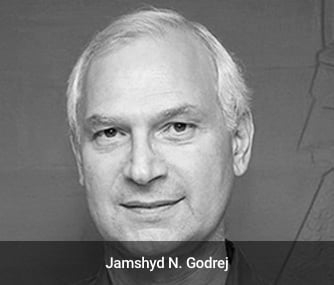
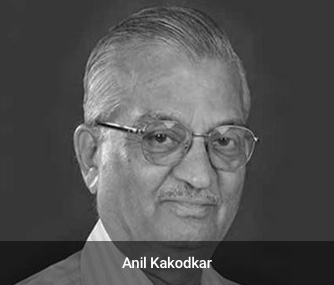
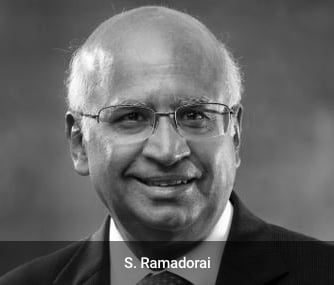
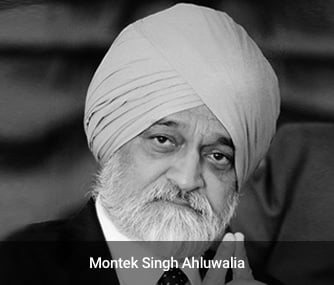
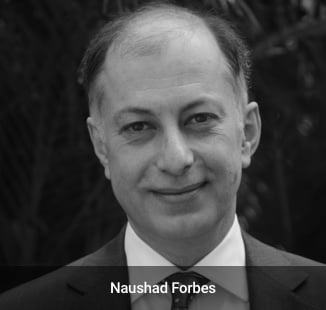
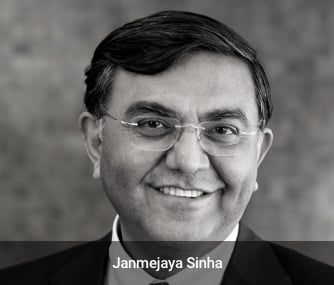
Mr. Jamshyd N. Godrej is the Chairman of the Board of Godrej & Boyce Manufacturing Company Limited. He graduated in Mechanical Engineering from Illinois Institute of Technology, USA. Mr. Godrej is the former Chairman of Ananta Aspen Centre (previously known as Aspen Institute India), Chairman & Trustee of Ananta Centre. He is the President of World Wide Fund for Nature – India. He is the Chairperson of the Board of Directors of Shakti Sustainable Energy Foundation, India Resources Trust and Council on Energy, Environment and Water. He is a Director of World Resources Institute, USA. He is also a Trustee of the Asia Society, USA. He is the Past President of Confederation of Indian Industry and also the Past President of the Indian Machine Tool Manufacturers’ Association. Mr. Godrej is the Chairman of the CII Sohrabji Godrej Green Business Centre. The Centre is housed in a LEED Platinum demonstration building which is the first green building in India and the greenest building in the world at the time when it was rated. The Green Business Centre is a Centre of Excellence for green buildings, energy efficiency, energy conservation, non-conventional energy sources, water policy, water conservation, etc. Godrej and Boyce Mfg. Co. Ltd. manufactures and markets refrigerators; washing machines; air conditioners; office furniture; home furniture; security equipment for banks (such as safes, strong room doors, bank lockers, etc.) and for commercial establishments and homes; locks and latches, forklift trucks and warehousing equipment; process equipment for chemical, petrochemical, refineries and allied industries; precision tools for sheet metal, zinc, aluminum; real estate development. The Godrej group are leaders in home appliances, consumer durables, office equipment, industrial products, consumer products and services. Mr. Godrej is an ardent yachting enthusiast and has done extensive cruising along the west coast of India, the Baltic & North Sea, the Atlantic Ocean and in the Mediterranean Sea. The President of India conferred on Mr. Godrej the “Padma Bhushan” on 3rd April 2003.

Dr Anil Kakodkar joined the Bhabha Atomic Research Centre (BARC) in 1964, following the one year post graduate training with top rank in Nuclear Science and Technology in the then Atomic Energy Establishment. He became the Director of BARC in the year 1996 and was the Chairman, Atomic Energy Commission and Secretary to the Government of India, Department of Atomic Energy, during the years 2000 -2009. Currently he is DAE Homi Bhabha Chair Professor at BARC. Kakodkar has worked for the development of the atomic energy programme in India throughout his professional life. Undeterred by the restrictions imposed by the international community, he succeeded in developing various systems for the pressurized heavy water reactor, in building the Dhruva reactor starting from the conceptual stage, in rehabilitation of Madras Atomic Power Station Units 1&2 both of which at one stage appeared to be on the verge of being written off following failure of the moderator inlet manifolds, in conceptualization and development of Advanced Heavy Water Reactor that realizes the next generation objectives through innovative configuration of present day technologies besides use of thorium. Kakodkar has been a key contributor to India’s strategic programme. He was among the chosen few involved in the first successful Peaceful Nuclear Explosion Experiment that India conducted on May 18, 1974 at Pokhran. And later, he played a key role in the series of successful Nuclear Tests conducted during May 1998, again at Pokhran. India also demonstrated nuclear submarine powerpack technology under Kakodkar’s leadership. Kakodkar’s sterling leadership led to a significant boost to India’s nuclear power programme notwithstanding the uranium supply constraints. As a result and with the completion of projects already underway, India’s nuclear generation capacity is set to reach 10,000 MWe as well as poised for a rapid scale up thereafter. The comprehensive and robust programme under Kakodkar’s leadership has earned India a distinctive status as a country with advanced nuclear technology. Notable also are his innovative contributions to human resource development activities. Establishment of NISER (National Institute of Science Education and Research), DAE-Mumbai University CBS (Centre for Basic Sciences) and HBNI (Homi Bhabha National Institute) are expected to result in a fresh wave of human resource development, generating greater experimental capabilities and bringing in linkage between basic research and technology development for the acceleration of India’s multifaceted atomic energy programme. A committee under his Chairmanship has worked out a detailed report for greater autonomy of IITs and taking them to world class level. He also chairs an empowered committee to take the process forward. He also led a committee set up by Government of Maharashtra to look at higher education in the State. The committee has made important recommendations that could lead to a paradigm change for improvement of higher education in the State. Another high-level committee under his Chairmanship has made comprehensive recommendations for improvement of safety on Indian Railway.

Mr S Ramadorai was in the public service from February 2011 to October 2016, having completed a five-year term in the area of Skill Development. During his tenure as the Chairman of National Skill Development Agency (NSDA) and the National Skill Development Corporation (NSDC), his approach was to standardise the skilling effort, ensure quality and commonality of outcomes by leveraging technology and create an inclusive environment to co-operate, collaborate & co-exist. He strongly believed that empowering the youth with the right skills could define the future of the country. Mr. Ramadorai is currently the Chairman of the Advisory Board at Tata STRIVE, which is the Tata Group’s CSR skill development initiative that aims to address the pressing national need of skilling youth for employment, entrepreneurship and community enterprise. He is also the Chairman of Tata Technologies Limited and additionally serves as an Independent Director on the Boards of Piramal Enterprises Limited and DSP Investment Managers. In March 2016, he retired as the Chairman of the Bombay Stock Exchange (BSE Limited) after having served on their board for a period of six years. Mr. Ramadorai took over as the CEO of Tata Consultancy Services (TCS) in 1996 when the company’s revenues were at $ 155 million and since then led the company through some of its most exciting phases, including its going public in 2004. In October 2009, he retired as the CEO, leaving a $ 6 billion global IT services company to his successor. He was then appointed as the Vice Chairman and retired in October 2014, after an association of over 4 decades with the company. Given his keen passion to work for the social sector and community initiatives, he serves as the Chairman of the Council of Management at the National Institute of Advanced Studies (NIAS). He is also the President of the Society for Rehabilitation of Crippled Children (SRCC) – which has recently built a super speciality children’s hospital in Mumbai. He was the Chairperson of the Governing Board at the Tata Institute of Social Sciences (TISS) until December 2021. In recognition of his commitment and dedication to the IT industry he was awarded the Padma Bhushan (India's third highest civilian honour) in January 2006. In April 2009, he was awarded the CBE (Commander of the Order of the British Empire) by Her Majesty Queen Elizabeth II for his contribution to the Indo-British economic relations. In 2016, he was also awarded The Economic Times - Lifetime Achievement Award for his glorious contribution to Tata Consultancy Services. His academic credentials include a Bachelor’s degree in Physics from Delhi University (India), a Bachelor of Engineering degree in Electronics and Telecommunications from the Indian Institute of Science, Bengaluru (India) and a Master’s degree in Computer Science from the University of California – UCLA (USA). In 1993, Ramadorai attended the Sloan School of Management’s highly acclaimed Senior Executive Development Program. Ramadorai is a well-recognized global leader and technocrat who has participated in the Indian IT journey from a mere idea in 1960’s to a mature industry today. Ramadorai captured this exciting journey in a wonderfully personalized book titled 'The TCS Story...and beyond' which was published in 2011 and remained on top of the charts for several months. Among his many interests, Ramadorai is also passionate about photography and Indian classical music.

Mr Montek Singh Ahluwalia was the Deputy Chairman of the Indian Planning Commission, with the rank of Cabinet Minister, from July 2004 to May 2014. Mr Ahluwalia started his career in the World Bank in 1968 as a Young Professional and left the World Bank in 1979 to join the Government of India in 1979 as Economic Adviser in the Ministry of Finance. From 1979 to 2001, he served in the Government of India in a number of positions – Special Secretary to the Prime Minister, Commerce Secretary, Secretary in the Department of Economic Affairs, Finance Secretary in the Ministry of Finance, Member of the Planning Commission and Member of the Economic Advisory Council to the Prime Minister. In 2001, Mr Ahluwalia was appointed the First Director of the newly created Independent Evaluation Office of the International Monetary Fund. He resigned from that position in June 2004, to take up the position of Deputy Chairman, Planning Commission. Mr Ahluwalia earned his B.A. (Hons) degree in New Delhi and was a Rhodes Scholar at Oxford, where he earned his M.A. and M. Phil degrees from Oxford University. He was awarded an Honorary D. Phil by Oxford University in 2008. His published work includes numerous papers in professional journals and contributions to books. He was awarded the prestigious “Padma Vibhushan”, India’s second highest civilian honour, by the President of India in 2011 for his outstanding contribution to economic policy and public service. Mr Ahluwalia is an Honorary Fellow of Magdalen College, Oxford and is a Distinguished Practitioner in the Blavatnik School in Oxford University. He was a Distinguished Visiting Professor at the Stern School of Business, New York University in 2015. He is currently on the Board of the Public Health Foundation of India.

Dr Naushad Forbes is the Co - Chairman of Forbes Marshall, India's leading Steam Engineering and Control Instrumentation firm. Forbes Marshall’s deep process knowledge helps their customers save energy, improve product quality, increase process efficiency, and run a clean and safe factory. Market leadership in India and, increasingly, internationally comes from highly trained people and the depth of their knowledge. A close connect with customers enables the design of products that address customer needs around the world. The products are made in a facility that is world-class in scale, aesthetics and work environment. Forbes Marshall has consistently ranked amongst India's Great Places to Work. Naushad was an occasional Lecturer and Consulting Professor at Stanford University from 1987 to 2004 where he developed courses on Technology in Newly Industrializing Countries. He received his Bachelors, Masters and PhD Degrees from Stanford University. Naushad is on the Board of several educational institutions and public companies. He is the Chairman of Centre for Technology, Innovation and Economic Research in Pune. Naushad has long been an active member of CII and has at various times chaired the National Committees on Higher Education, Innovation, Technology and International Business. He was President of CII for 2016 – 17.

Dr Janmejaya Sinha is Chairman of BCG's India Practice and also a BCG Fellow doing research on the subject of Family Businesses. He is a member of The Boston Consulting Group’s Henderson Institute Innovation Sounding Board, which is dedicated to supporting, inspiring, and guiding upstream innovation at BCG. Previously served as Chairman of the Asia-Pacific region between 2009 – 2018 and as a member of the firm's Executive Committee between 2006 – 2018. He has deep expertise in managing conflict in family owned businesses. He has worked extensively with clients across the world over a range of issues encompassing large scale organization transformation, strategy, governance, family business issues and operations turnaround. He has been a member of various committees set up by Government of India, Reserve Bank of India (RBI), Indian Banks' Association (IBA), and Chair's Confederation of Indian Industry's Committee on Inclusion and Digitisation. He was a member of the Committee of Chief Ministers on adoption of Digital Payments. He writes extensively in the press and is a regular speaker at the WEF, CII, IBA, FICCI, RBI and other media events. He is a co-author of the book titled “Your Strategy Needs A Strategy” published by Harvard Business Review Press and has co-edited the book titled "Own The Future" published by Wiley. In 2010, the Consulting Magazine named him one of the Top 25 most influential consultants in the world. Prior to joining The Boston Consulting Group he worked with the Reserve Bank of India for several years across different departments. He has also worked briefly for the World Bank. Dr. Sinha has a Ph.D from the Woodrow Wilson School of Public and International Affairs, Princeton University, US, a BA and an MA in Economics from Clare College, Cambridge University, UK and a BA and an MA in History from St Stephen’s College, Delhi University, India.


Tracing our Journey
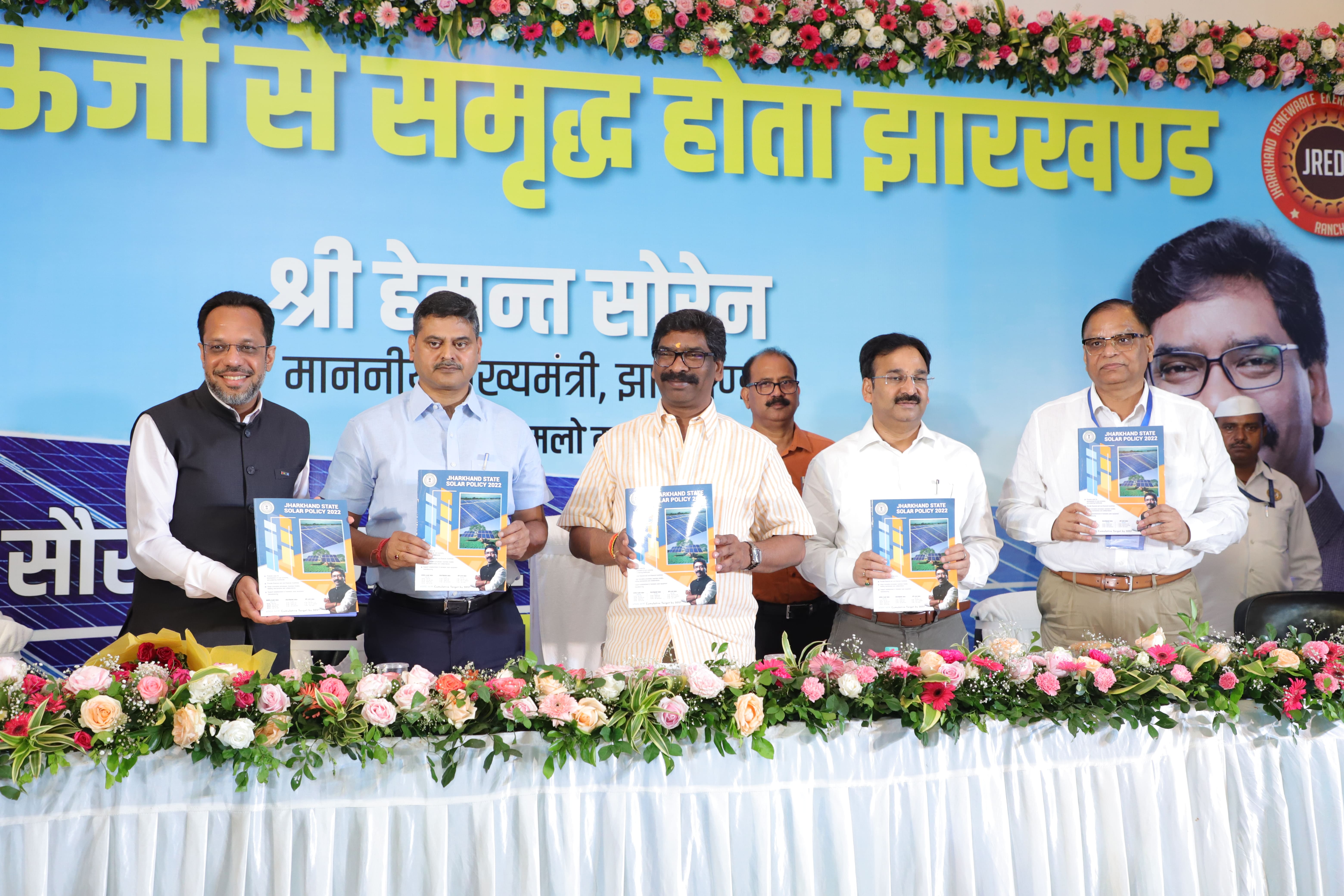
Union Minister of Environment, Forest and Climate Change launched two reports, "Making Sustainable Cooling in India Affordable" and "Technology Gaps in India’s Air-Conditioning Supply Chain".
Supported the Jharkhand Renewable Energy Development Agency (JREDA) as a knowledge partner to develop the Jharkhand State Solar Policy 2022.
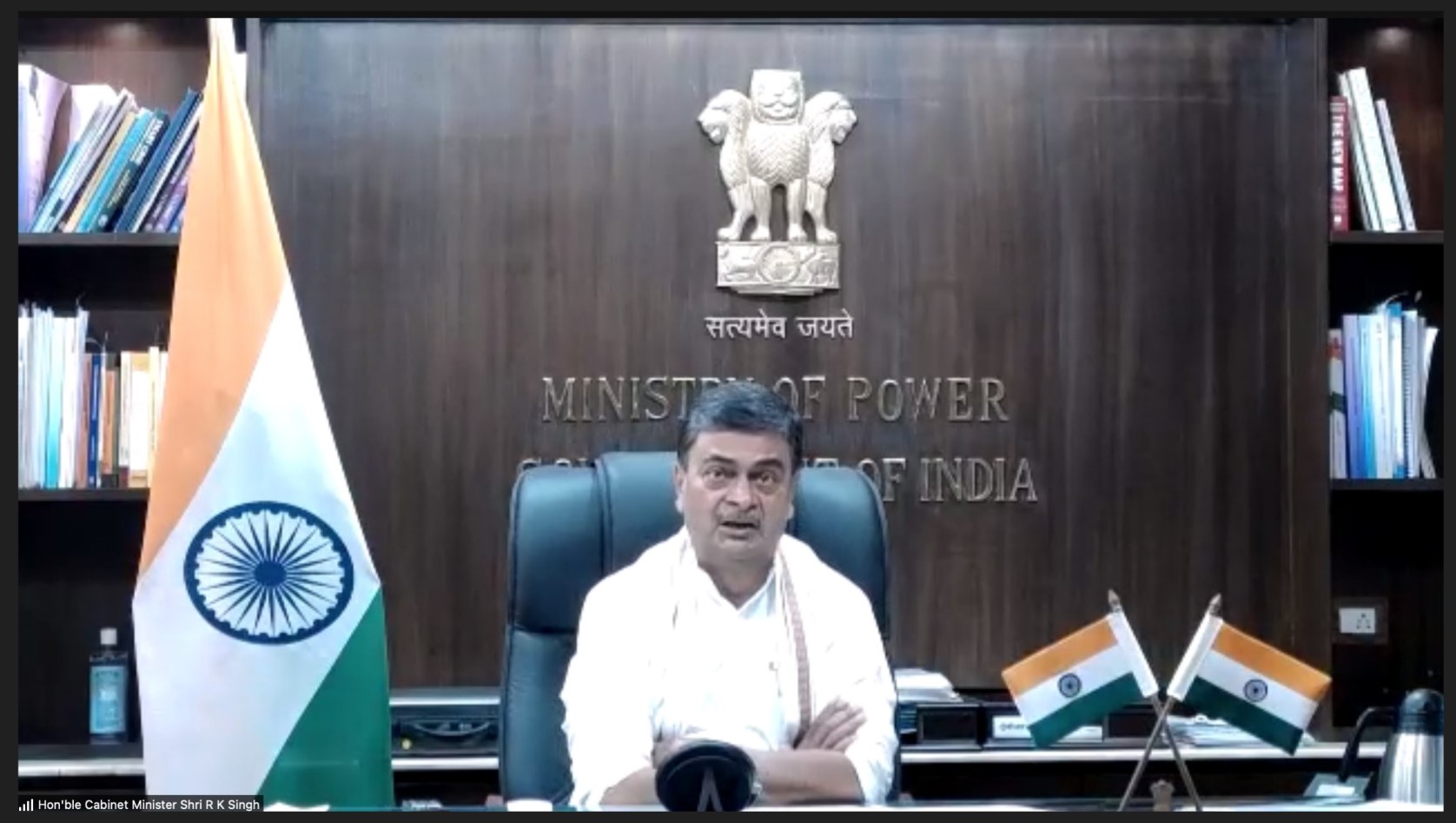
Union Minister of New and Renewable Energy launched the report, "Greening Steel: Moving to Clean Steelmaking using Hydrogen and Renewable Energy".
Released a first-of-its-kind analysis on the implications of a net-zero target for India’s sectoral energy transitions
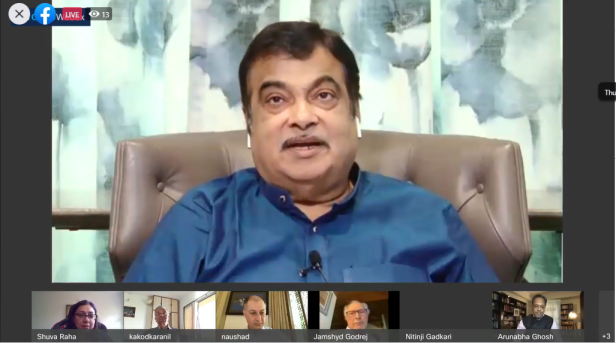
Union Minister of Micro, Small and Medium Enterprises launched the report ‘Jobs, Growth and Sustainability: A New Social Contract for India’s Recovery'.
Union Minister of Commerce and Industry launched Powering Livelihoods, a $3 million CEEW-Villgro initiative to boost India's rural economy through clean energy-powered livelihood solutions.
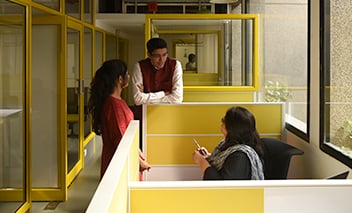
The CEEW Centre for Energy Finance was jointly launched by Union Minister H.E. Dharmendra Pradhan and Dr Fatih Birol, Executive Director, International Energy Agency at The Council's annual flagship conference Energy Horizons.
In TED Talks India, Arunabha Ghosh outlined a plan, 'Mission 80-80-80', for cleaner, safer air in India. Launched a new podcast, Peak Planet, with season 1 on air pollution.
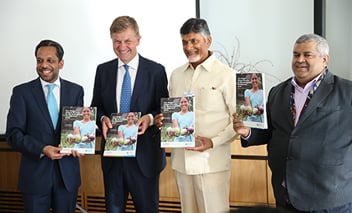
CEEW featured in nine categories of ‘Global Go To Think Tank Index’ for third consecutive year
Andhra Pradesh's Chief Minister released our study on Zero Budget Natural Farming

Launched 'Women in Sustainability' on World Environment Day
Released a first-of-its-kind independent evaluation on the role of electricity access on health outcomes in rural Chhattisgarh
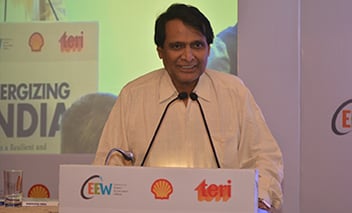
Railways Minister released ‘Energising India: Towards a Resilient and Equitable Energy System’
Supported the successful and historic conclusion of many years of negotiations to phase down HFCs
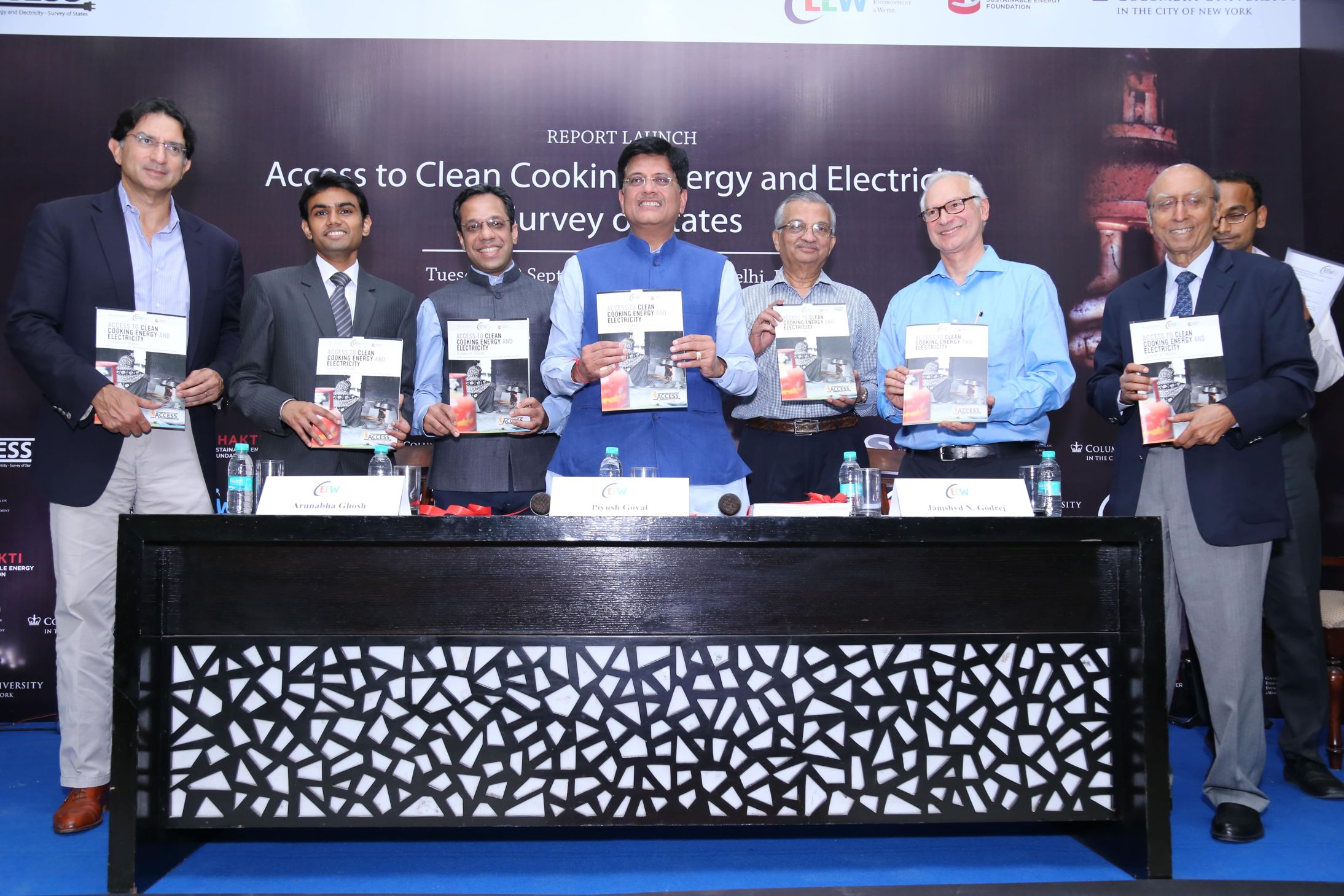
Minister of Power, Coal and New & Renewable Energy released ACCESS Report, based on India’s largest energy access survey
TShowcased climate leadership during COP21 climate negotiations in Paris
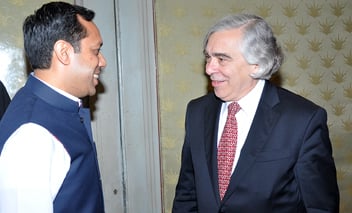
Hosted Dr. Ernest Moniz, US Energy Secretary, for a dialogue on Scaling Decentralised Clean Energy in India
CEEW ranked number one climate think- tank in India for second consecutive year by ICCG
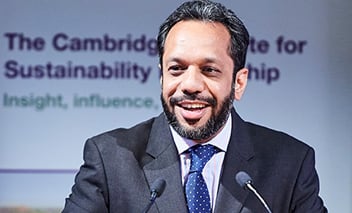
Arunabha Ghosh, CEO, CEEW, nominated Young Global Leader by World Economic Forum
Published report on urban water and sanitation in India
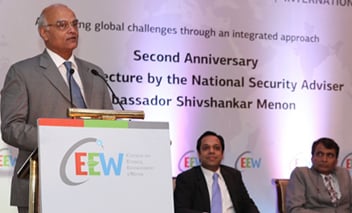
Published the first independent assessment of India's National Solar Mission
National Security Adviser of India delivered the keynote lecture at CEEW's Second Anniversary
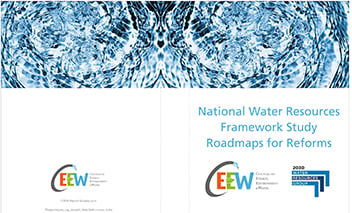
Published a 584-page National Water Resources Framework Study for India’s 12th Five Year Plan
Submitted the first-ever report on India and Global Governance to National Security Advisor at PM's Office
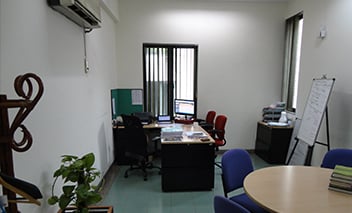
Idea for a think-tank to integrate energy, water and environment conceived
Conceptualised and enabled the Maharashtra-Guangdong partnership on sustainability
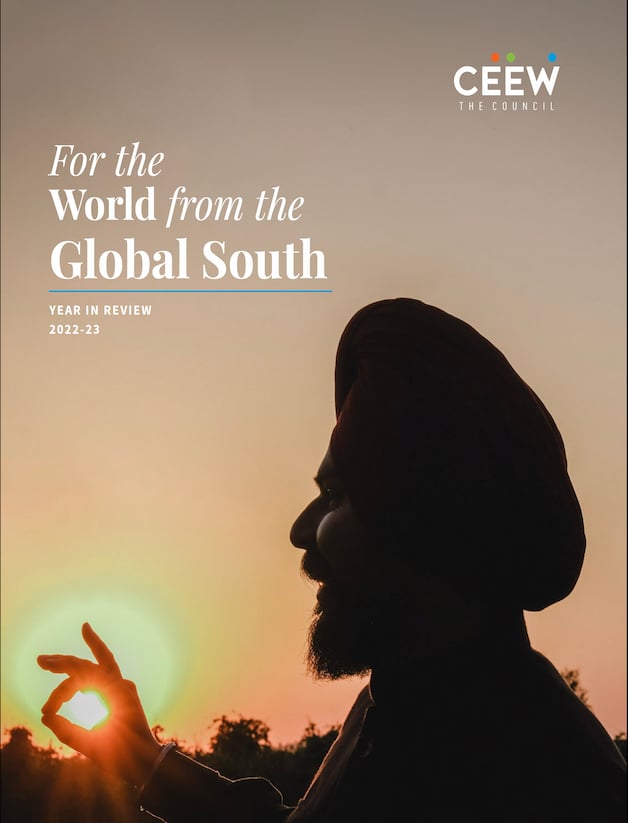
What was the idea behind conceiving CEEW?
The founding board envisioned CEEW as an India-based, globally engaged policy research organisation which would analyse and advise on critical questions on energy, environment and water, not as disparate issues but as inter-connected concerns. These concerns had local impacts, as well as global ramifications. The Council was founded in 2010 to also serve as a platform for people with different skills to come together, pursue their interests and build careers in public policy.
More FAQs here.
The Council on Energy, Environment and Water (CEEW) is an independent, non-partisan, not-for-profit policy research institution, devoted to research on all matters affecting the use, reuse, and misuse of resources. We maintain our independence through a diversity of funding sources such as donations and grants from private and philanthropic foundations, multilateral organisations, government grants, corporations, and public institutions.
Learn more about our donors, funding sources, and FCRA fund receipts here.